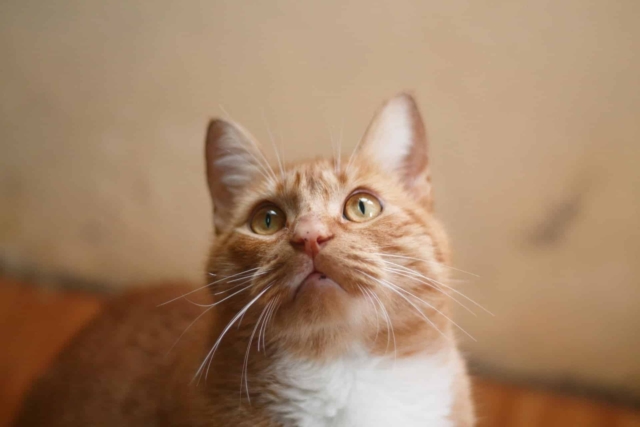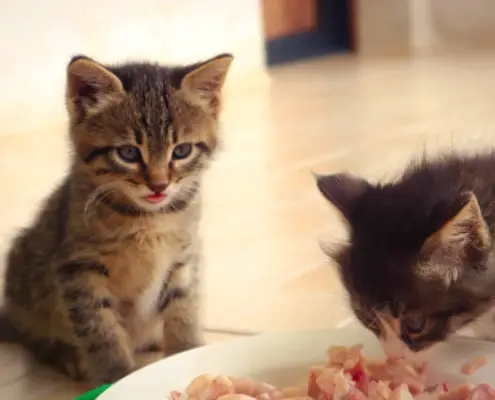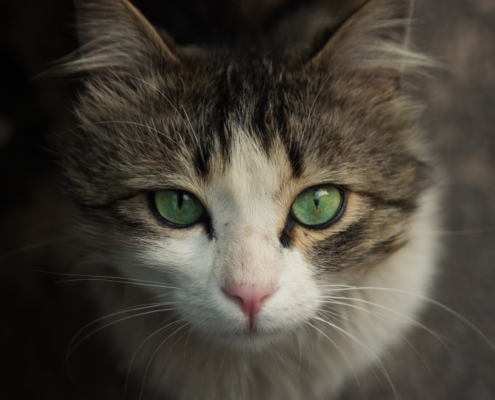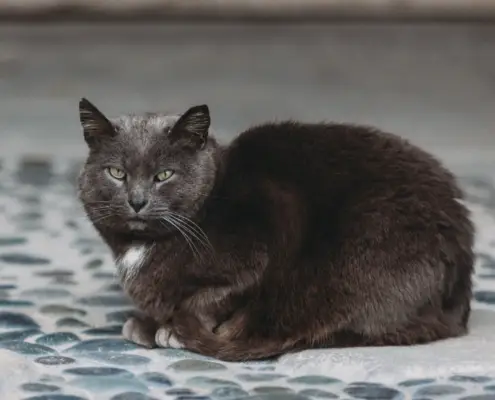
Cats are known for their particular taste and dietary preferences. As a responsible cat owner, it’s essential to ensure that your feline friend is getting the right nutrition. One of the most common debates among cat owners revolves around the healthiness of canned food for cats. While some argue that it offers numerous benefits, others express concerns about the potential drawbacks. In this article, we will delve into the truth about canned food for cats, examining its pros, cons, and nutritional benefits.
Pros and Cons of Feeding Canned Food to Cats
Feeding canned food to cats has its fair share of advantages and disadvantages. One of the significant benefits of canned food is its high moisture content. Cats are naturally prone to urinary tract issues, and the additional hydration provided by canned food can help prevent such problems. Additionally, canned food tends to have higher protein content compared to dry kibble, which is beneficial for maintaining muscle mass and overall health.
On the other hand, the main concern with canned food is its potential for dental issues. Since canned food is soft compared to kibble, it does not provide the same dental benefits of chewing and scraping that kibble offers. However, this can be mitigated by incorporating dental treats or regular teeth brushing into your cat’s routine.
Nutritional Benefits of Canned Food for Cats
Canned food often contains higher quality ingredients compared to some dry kibble options. It usually consists of real meat, providing essential amino acids that cats require for optimal health. Additionally, canned food is generally lower in carbohydrates, which is more in line with a cat’s natural dietary needs. The higher moisture content of canned food also helps prevent dehydration, particularly important for cats who may not be predisposed to drink enough water.
Furthermore, canned food is known to be easier to digest compared to dry kibble, making it a suitable option for cats with sensitive stomachs or digestive issues. The increased digestibility can lead to improved nutrient absorption, contributing to better overall health and wellbeing.
Common Misconceptions about Canned Food for Cats
There are several misconceptions surrounding canned food for cats that need to be addressed. One common myth is that canned food lacks essential nutrients. However, reputable brands ensure that their canned food products meet the nutritional requirements established by veterinary professionals. It’s crucial to read the labels and choose high-quality canned food options that provide a balanced and complete diet for your cat.
Another misconception is that canned food is more expensive than dry kibble. While some premium canned food brands may have a higher price tag, there are also affordable options available. Additionally, investing in your cat’s health through proper nutrition can potentially save you money on veterinary bills in the long run.
Choosing the Right Canned Food for Your Cat
When selecting canned food for your cat, it’s important to consider their specific needs, such as age, weight, and any underlying health conditions. Look for products that are specifically formulated for cats, as they are designed to provide the necessary nutrients for feline health. Aim for a canned food that lists a high-quality source of animal protein as the first ingredient and avoid products that contain excessive fillers or artificial additives.
Consulting with your veterinarian can also be helpful in determining the best canned food option for your cat’s individual needs. They can provide guidance based on your cat’s specific dietary requirements and any health concerns.
How to Introduce Canned Food into Your Cat’s Diet
Introducing canned food into your cat’s diet should be done gradually to avoid any digestive upset. Start by mixing a small amount of canned food with your cat’s regular food and gradually increase the proportion of canned food over time. Monitor your cat’s response to the new diet and make any necessary adjustments. It’s important to note that some cats may take longer to adjust to a new food, so patience is key during this transition period.
Tips for Feeding Canned Food to Cats
To ensure a healthy and balanced diet for your cat, consider the following tips when feeding canned food:
- Portion control: Follow the feeding guidelines provided on the product packaging to avoid overfeeding.
- Proper storage: Canned food should be refrigerated after opening and consumed within a few days to maintain freshness and prevent bacterial growth.
- Variety: Offer a variety of flavors and textures to add interest to your cat’s meals and prevent boredom.
- Regular check-ups: Schedule regular veterinary check-ups to monitor your cat’s overall health and discuss any dietary concerns.
Alternatives to Canned Food for Cats
While canned food is a popular choice for cat owners, it’s not the only option available. Some cat owners prefer feeding a raw or homemade diet, which allows for complete control over the ingredients. However, it’s essential to consult with a veterinary professional or a feline nutritionist to ensure the diet is nutritionally balanced and meets your cat’s specific needs.
Dry kibble is another alternative to canned food, offering convenience and affordability. However, it’s important to note that cats generally have a lower thirst drive, and relying solely on dry kibble may not provide sufficient hydration.
Expert Opinions on the Healthiness of Canned Food for Cats
Veterinary professionals generally agree that canned food can be a healthy option for cats, provided it meets their nutritional needs. Dr. Jane Doe, a renowned feline veterinarian, emphasizes the importance of choosing high-quality canned food that offers a balanced and complete diet. She asserts that canned food’s higher moisture content and superior protein quality can contribute to a cat’s overall health and wellness.
Making an Informed Decision for Your Cat’s Health
In conclusion, canned food can indeed be a healthy choice for cats when selected and fed appropriately. It provides various nutritional benefits, including higher moisture content, quality protein, and improved digestibility. While dental concerns and misconceptions exist, they can be addressed through proper dental care and choosing reputable brands. Ultimately, consulting with your veterinarian and understanding your cat’s specific dietary needs will help you make an informed decision that promotes your cat’s health and well-being.
Consult with your veterinarian to determine the best diet for your cat’s individual needs and ensure their long-term health and happiness.
If you enjoyed my article, I would appreciate you sharing it with your network.

Sima Ndlebe
Sima writes for CatBuzz. He is interested in Cats, Health and Fitness, and Entrepreneurship.
Published: 16 November 2023
Related Articles
Disclaimer
The content found on CatBuzz.org is presented on an "as is" basis and is intended for general consumer information and education purposes only. Any utilization of this information is voluntary and solely at the user's own risk.
None of the articles or content should be regarded as, or used in place of, veterinary medical advice, diagnosis, or treatment. The information provided on the website is purely for educational and informational intentions and should not be considered a substitute for professional guidance from a veterinarian or other qualified expert. The articles are designed to inform consumers about veterinary healthcare and medical matters that may impact their cat's daily life. It should be noted that this website and its services do not constitute the practice of any form of veterinary medical advice, diagnosis, or treatment. CatBuzz.org explicitly disclaims any liability for any direct or indirect damages or losses that may arise from the use of or reliance on the information contained within the content.
Consumers must consult a veterinarian, veterinary specialist, or another qualified veterinary healthcare provider when seeking advice regarding their cat's health or medical conditions. It is important not to ignore, avoid, or postpone seeking medical advice from a veterinarian or other qualified veterinary healthcare provider solely based on information obtained from this website. If you believe that your cat may be experiencing a medical issue or condition, it is imperative to promptly contact a qualified veterinary healthcare professional.




